- Naugatuck Valley Community College offers quality, affordable education and training in response to evolving community needs by providing opportunities to individuals and organizations to develop their potential.
School Highlights
Naugatuck Valley Community College serves 4,673 students (36% of students are full-time).
The college's student:teacher ratio of 11:1 is lower than the state community college average of 26:1.
Minority enrollment is 95% of the student body (majority Black), which is more than the state average of 72%.
Quick Stats (2025)
- Enrollment: 4,673 students
- In-state tuition: $3,886
- Out-state tuition: $11,578
- Student:teacher ratio: 11:1
- Minority enrollment: 95%
- Source: Integrated Postsecondary Education Data System (IPEDS)
Top Rankings
Naugatuck Valley Community College ranks among the top 20% of public schools in Connecticut for:
Category
Attribute
Community Size
School Overview
The teacher population of 417 teachers has stayed relatively flat over five years.
Naugatuck Valley Community College
(CT) Community College Avg.
Carnegie Classification
Associate's Colleges: Mixed Transfer/Career & Technical-High Traditional
Associates Colleges
Institution Level
At least 2 but less than 4 years
At least 2 but less than 4 years
Institution Control
Public
Public
Total Faculty
417 staff
154 staff
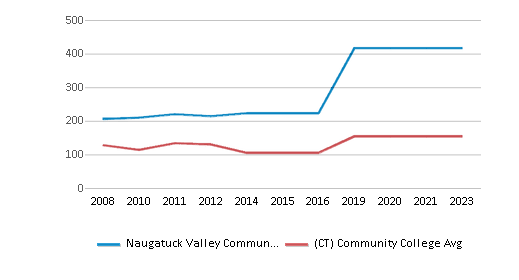
School Calendar
Student Body
The student population of Naugatuck Valley Community College has declined by 22% over five years.
The student:teacher ratio of 11:1 has decreased from 12:1 over five years.
The Naugatuck Valley Community College diversity score of 0.67 is less than the state average of 0.81. The school's diversity has stayed relatively flat over five years.
Total Enrollment
4,673 students
1,220 students
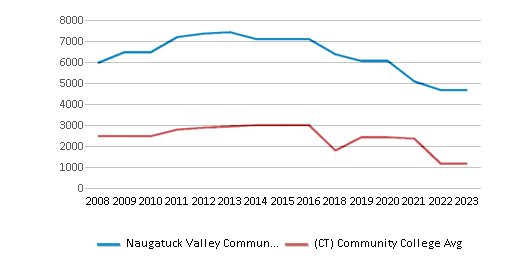
Student : Teacher Ratio
11:1
26:1
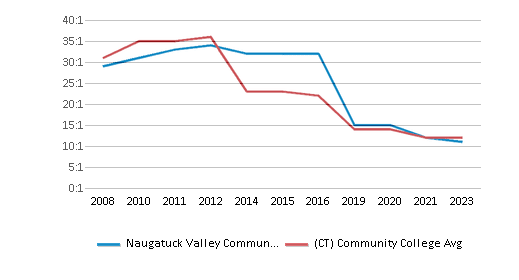
# Full-Time Students
1,676 students
770 students
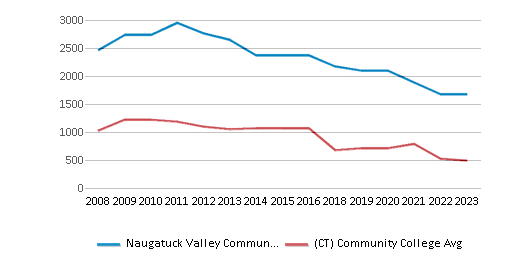
# Part-Time Students
2,997 students
713 students
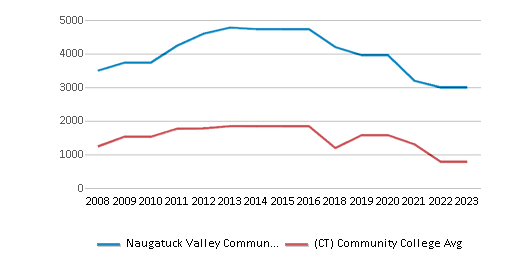

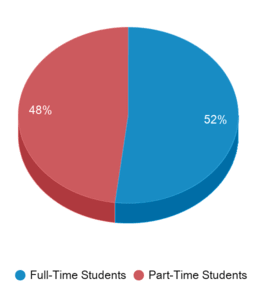
# Enrollment Undergraduate
352 students
352 students
# Full-Time Undergraduate Students
1,676 students
770 students
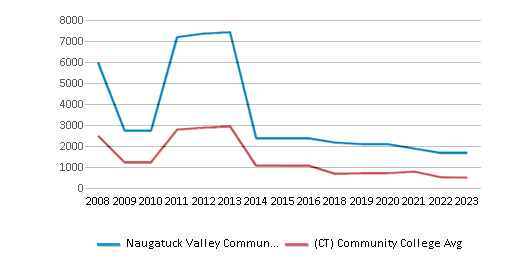
# Full-Time Graduate Students
n/a
27 students
# Part-Time Undergraduate Students
2,997 students
713 students
# Part-Time Graduate Students
n/a
144 students
Total Dormitory Capacity
n/a
550 students
% American Indian/Alaskan
3%
2%
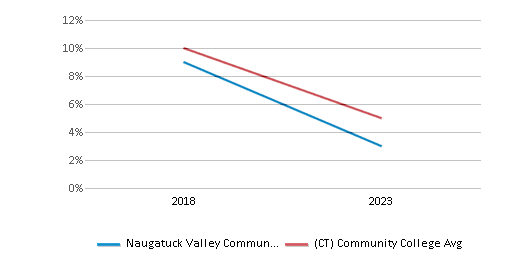
% Asian
11%
9%
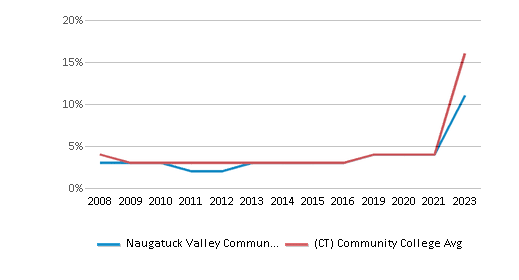
% Hispanic
n/a
17%
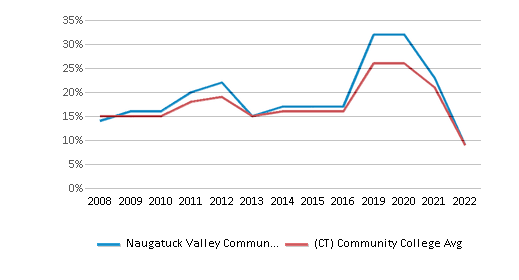
% Black
28%
20%
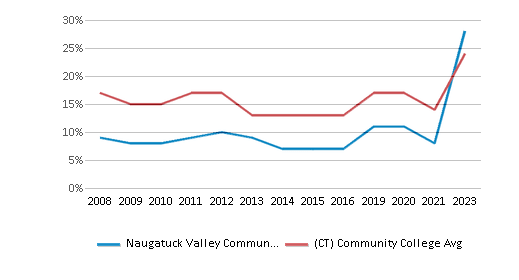
% White
5%
28%
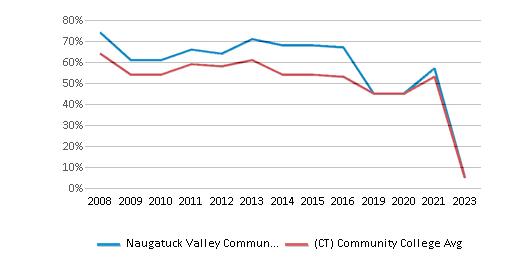
% Hawaiian
48%
17%
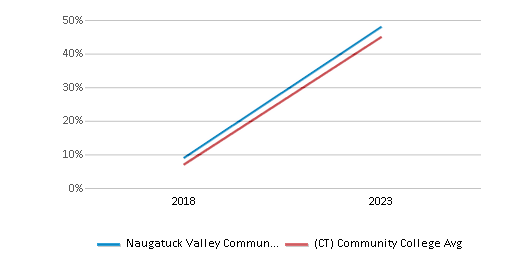
% Two or more races
3%
3%
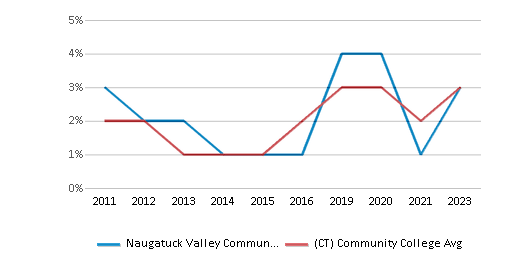
% Non Resident races
n/a
2%
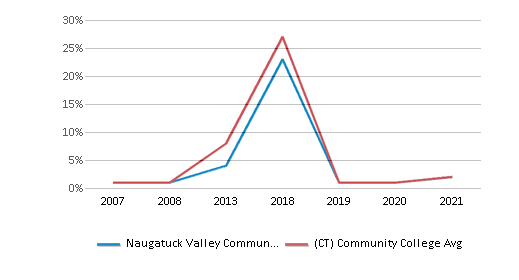
% Unknown races
3%
2%
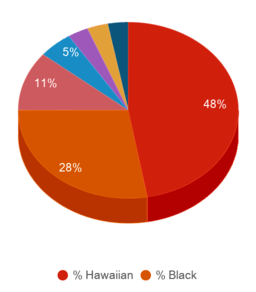
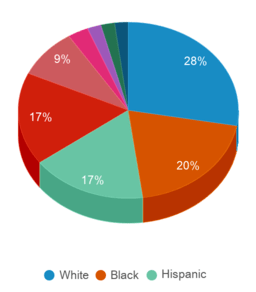
Diversity Score
0.67
0.81
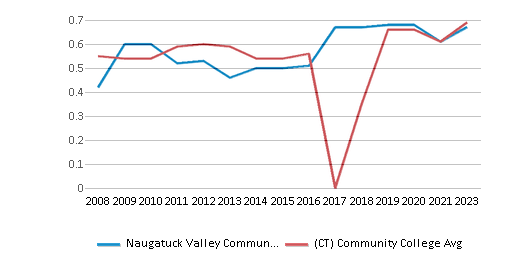
College Completion Rate (Students who graduate in less than 4 years)
0.1365%
0.1962%
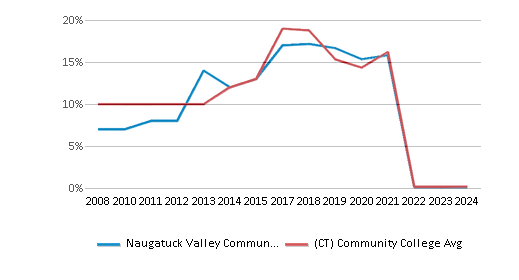
College Completion Rate (Students who graduate in 4 years or more than 4 years)
n/a
0.5992%
Average Graduate Earnings (10 Years)
$37,800
$34,800
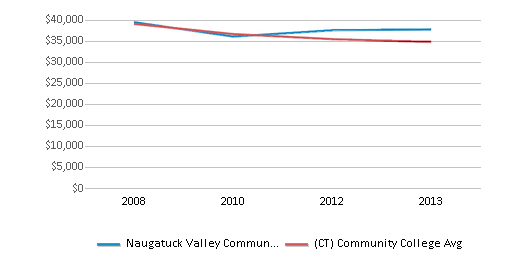
Tuition and Acceptance Rate
The public in-state tuition of $3,886 is less than the state average of $5,329. The in-state tuition has declined by 12% over four years.
The public out-state tuition of $11,578 is less than the state average of $15,711. The out-state tuition has declined by 12% over four years.
In-State Tuition Fees
$3,886
$5,329
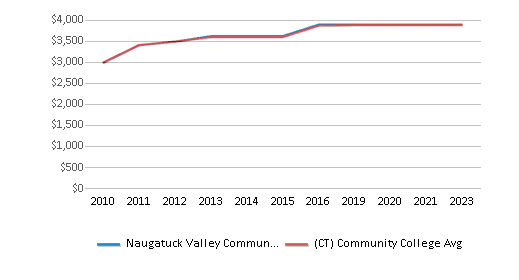
Out-State Tuition Fees
$11,578
$15,711
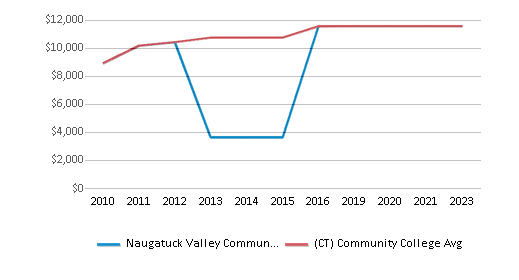
% Students Receiving Some Financial Aid
89%
88%
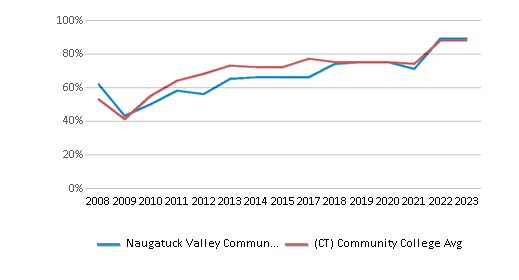
Median Debt for Graduates
$8,000
$8,000
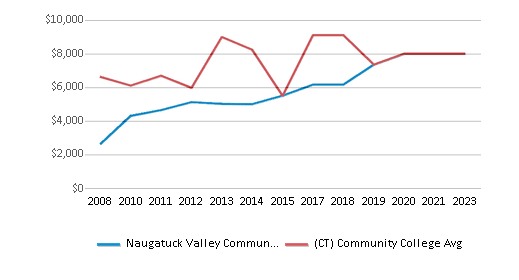
Median Debt for Dropouts
$3,500
$4,356
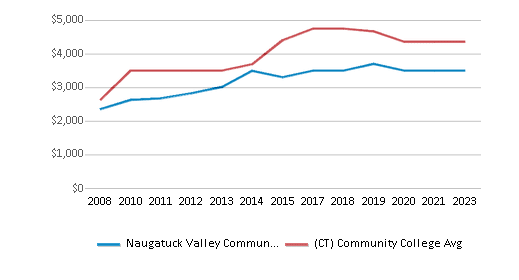
Acceptance Rate
n/a
78%
SAT Reading
n/a
500
SAT Math
n/a
510
ACT Composite
n/a
23
Source: 2024 (or latest year available) Integrated Postsecondary Education Data System (IPEDS)
School Notes
- Naugatuck Valley Community College is a Public, two-year, Associate Degree granting, co-educational, non-residential college. Established in 1962 and renamed in 1992, NVCC is a "community based" college where students are provided opportunities to learn and explore their interests and abilities. Naugatuck Valley Community College operates in close collaboration with the citizens of the region, the Connecticut Departments of Labor and Economic Development, and other Community Development agencies, as well as Secondary School Districts and Public and Independent Institutions of Higher Education, in order to develop and sustain excellent programs which respond to the economic development needs of the state and the short-term and long-range educational needs of individual citizens. The 110 acre campus is equipped with state-of-the-art classrooms and laboratories for general and specialized use. The Learning Resource Center supports the college's mission and academic curricula through its specialized services and diverse collection of materials and online resources. The Student Center supports student activities and offers a game room, and full-service cafeteria. NVCC is home to one of Connecticut's three observatories. Each year hundreds of citizens come to campus to view the "heavens." Over 1,100 networked computers are available for student use. The campus provides cultural programs for the region in the Fine Arts Center which houses two theatres, music and dance studios, video studios, and rehearsal rooms. Convenient, safe, and ample parking is available in parking garages and outdoor lots close to each section of the campus. The College is accreditated by the New England Association of Schools and Colleges and Connecticut Board of Governors for Higher Education. Several special program accreditations including the American Bar Association, National League of Nursing, and the Technology Accreditation Commission of the Accreditation Board for Engineering and Technology.
Frequently Asked Questions
How much does Naugatuck Valley Community College cost?
Naugatuck Valley Community College's tuition is approximately $3,886 for In-State students and $11,578 for Out-State students.
What is Naugatuck Valley Community College's ranking?
Naugatuck Valley Community College ranks among the top 20% of community college in Connecticut for: Largest student body.
Recent Articles

Obtaining Your Bachelor's Degree at a Community College
Explore the evolving landscape of community colleges offering bachelor's degrees, addressing affordability, accessibility, and workforce needs.

A to Z of Community College Certificates and Courses
From business and healthcare to technology and skilled trades, the article showcases the breadth of options available to students seeking to enhance their knowledge, develop new skills, or pursue career advancement.

What is a Community College?
This comprehensive guide explains what a community college is, its history, and its role in higher education. It covers the types of programs offered, differences from four-year colleges, benefits of attending, and important considerations for prospective students, providing valuable insights for those exploring educational options.











